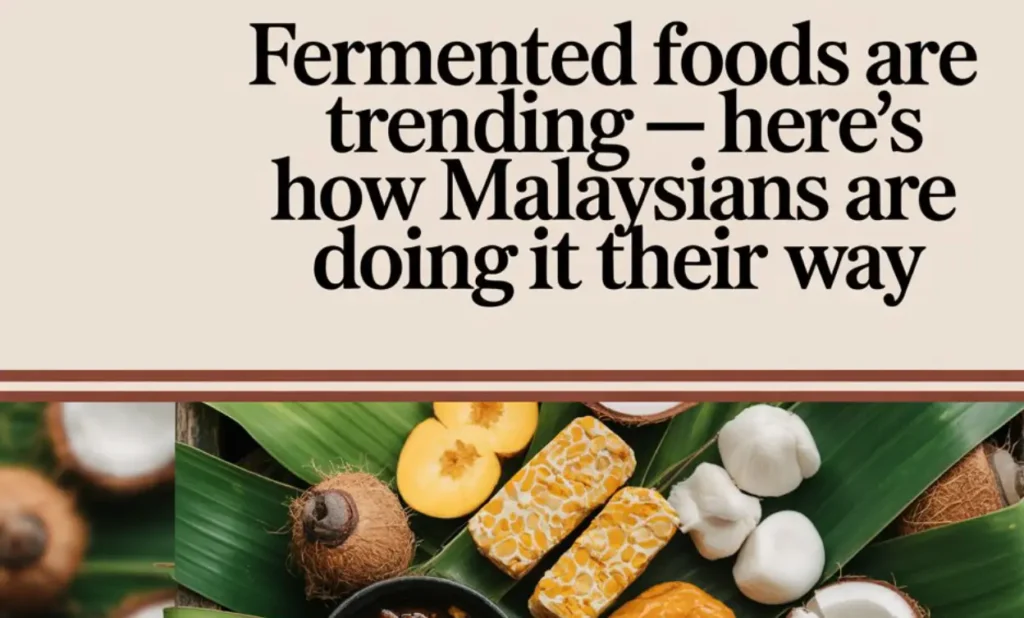
Fermented foods have seen a remarkable resurgence globally, and Malaysia stands at the forefront of this revival, merging centuries-old traditions with modern culinary innovations. As health-conscious consumers seek gut-friendly, probiotic-rich options, Malaysians are showcasing their distinctive fermentation techniques and unique local ingredients, making their mark in the global fermented foods movement.
A Rich Heritage of Malaysian Fermentation
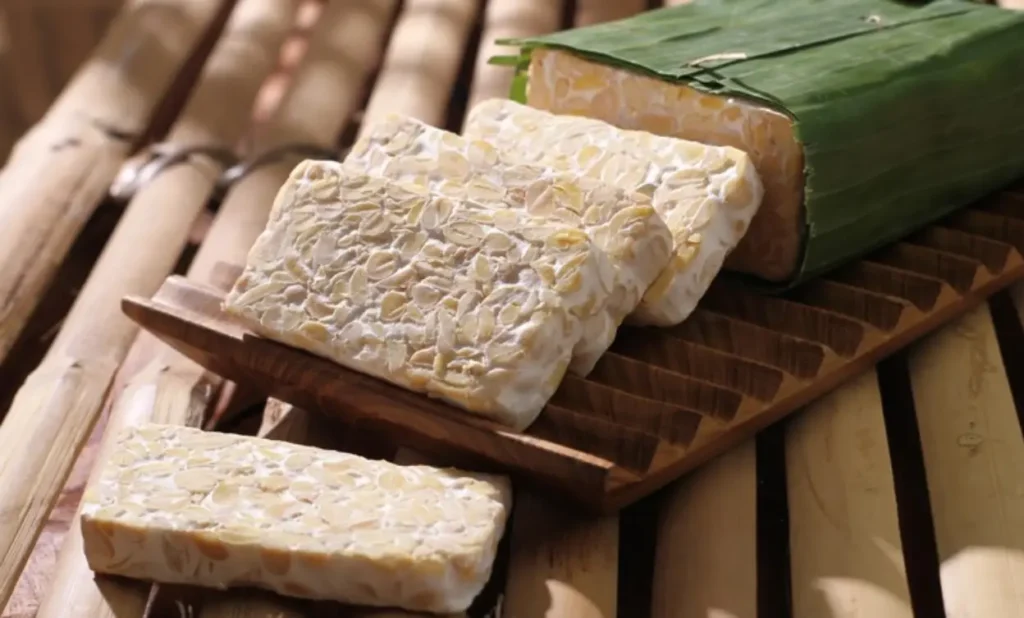
Malaysia’s culinary heritage is deeply intertwined with fermentation. From bustling street markets to high-end restaurants, fermented dishes and condiments have long been staples. Classic examples include:
- Tempeh – Though originally from Indonesia, this fermented soybean cake is a daily feature in Malaysian households.
- Tapai – A cherished delicacy, tapai is made by fermenting glutinous rice or cassava, offering a sweet and tangy profile.
- Budu and Cincalok – Fermented fish-based condiments that are essential to the flavors of the East Coast, adding umami depth to every meal.
- Kimchi-Malaysian Hybrids – Influenced by global trends, Malaysians have created local versions of kimchi using indigenous vegetables like mustard greens and winged beans.
These foods are not just culinary delights but also embodiments of Malaysia’s multicultural tapestry, blending Malay, Chinese, and Indian influences seamlessly.
Innovative Approaches by Malaysian Artisans
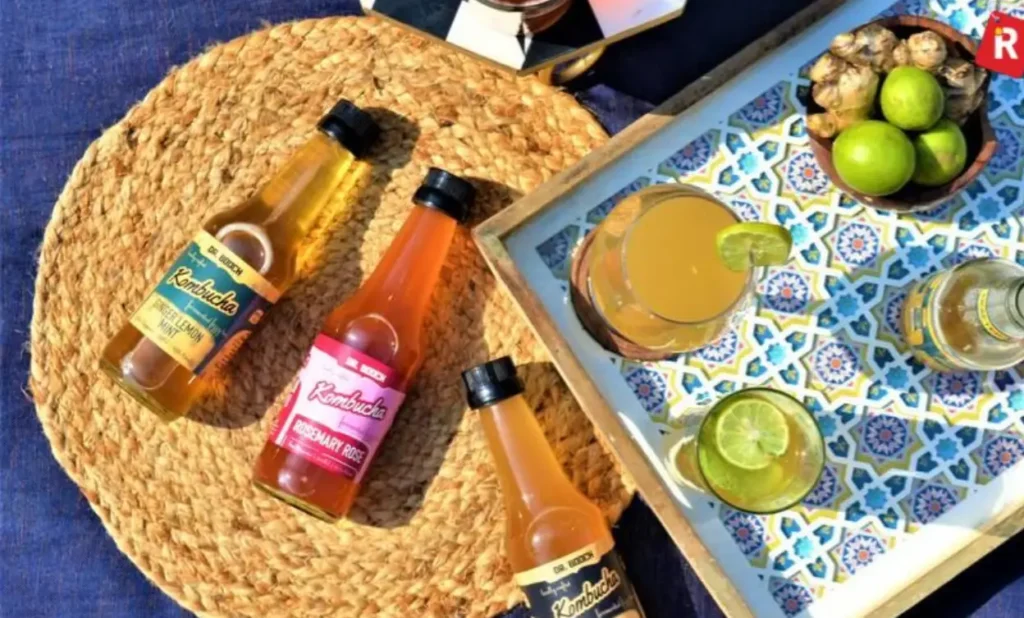
Malaysian artisans are pushing the boundaries of traditional fermentation by incorporating modern techniques and health-conscious ingredients. Startups and home-based entrepreneurs are experimenting with:
- Plant-Based Yogurts and Kefirs – Crafted from coconut milk and soy, these probiotic powerhouses cater to vegan and lactose-intolerant consumers.
- Local Fruit Kombuchas – Infused with tropical flavors like pandan, calamansi, and mangosteen, Malaysian kombuchas are both refreshing and uniquely regional.
- Fermented Hot Sauces – Combining bird’s eye chili and fermented anchovies, these sauces pack both heat and umami, revolutionizing local spice blends.
With increasing access to fermentation workshops and online tutorials, DIY fermentation at home is booming, empowering Malaysians to experiment and personalize their fermented creations.
Health Benefits Fueling the Fermentation Craze
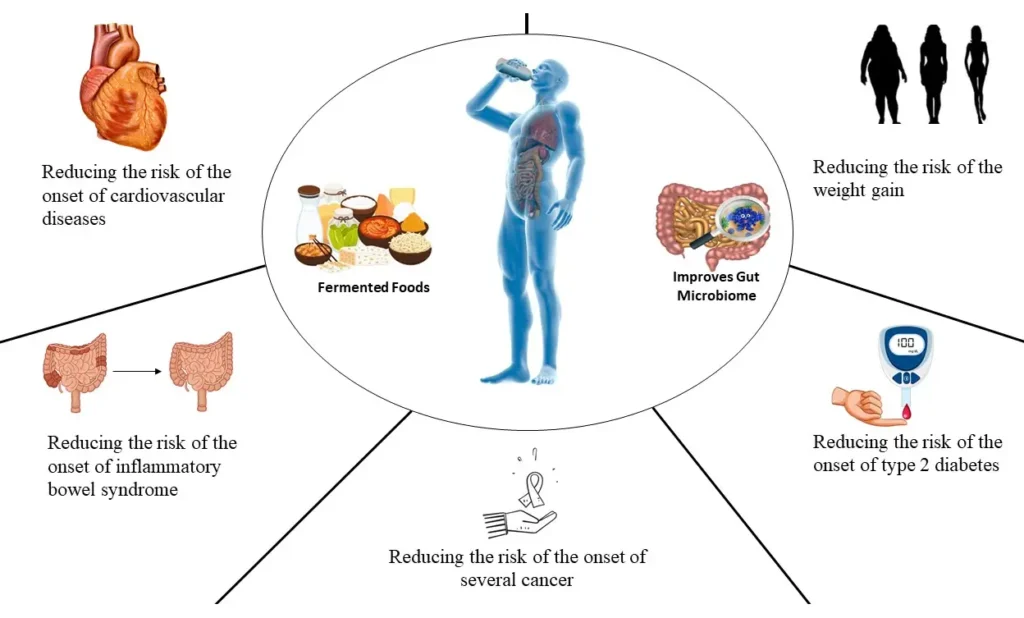
The surge in popularity of fermented foods is closely tied to their health-enhancing properties. Rich in probiotics, fermented foods:
- Improve gut health by balancing intestinal flora.
- Boost the immune system, helping the body fend off infections.
- Enhance nutrient absorption, making vital vitamins and minerals more bioavailable.
- Aid in digestion, easing symptoms of bloating and constipation.
In Malaysia, the health benefits of fermentation have long been recognized in traditional medicine, with fermented herbal tonics and teas playing a significant role in holistic wellness practices.
Sustainability: A Key Driver in Malaysia’s Fermentation Movement
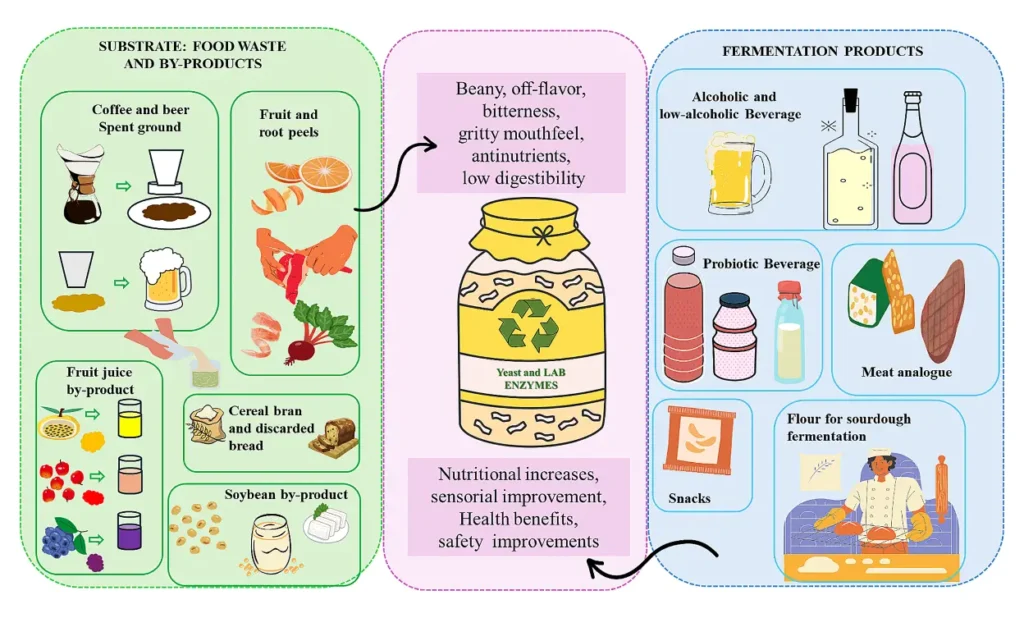
Fermentation is not just about taste and health it’s also a powerful tool for sustainability. Malaysians are increasingly aware of food waste issues and are turning to fermentation as a solution:
- Vegetable Scraps to Pickles – Home cooks transform excess or blemished produce into delicious pickles, reducing kitchen waste.
- Zero-Waste Breweries – Craft brewers repurpose fermentation by-products into animal feed or fertilizers, embracing full-circle sustainability.
- Local Sourcing – Artisans prioritize sourcing ingredients from nearby farms, minimizing carbon footprints and supporting local agriculture.
This commitment to sustainability resonates with a new generation of eco-conscious consumers, reinforcing fermentation’s relevance in modern Malaysia.
Cultural Celebrations and Fermentation Festivals

Fermentation holds a special place in Malaysian festivals and cultural events. During Hari Raya and Chinese New Year, families prepare and share traditional fermented dishes as symbols of prosperity and unity. Community-driven fermentation festivals have also emerged, where locals gather to showcase their creations, exchange recipes, and attend educational workshops.
These events highlight the deep social significance of fermentation in Malaysia, reinforcing communal bonds and ensuring that fermentation knowledge is passed down to future generations.
The Future of Fermented Foods in Malaysia
Looking ahead, the future of fermentation in Malaysia is bright and dynamic. We can expect to see:
- Greater integration of science and technology, improving fermentation precision and safety.
- Expansion of export markets, introducing Malaysian fermented products to global consumers.
- Continuous evolution of fusion foods, blending traditional fermentation with international culinary trends.
As Malaysians continue to innovate while staying true to their rich heritage, they are poised to lead in the global fermented foods arena, showcasing a uniquely Malaysian flair that resonates worldwide.
